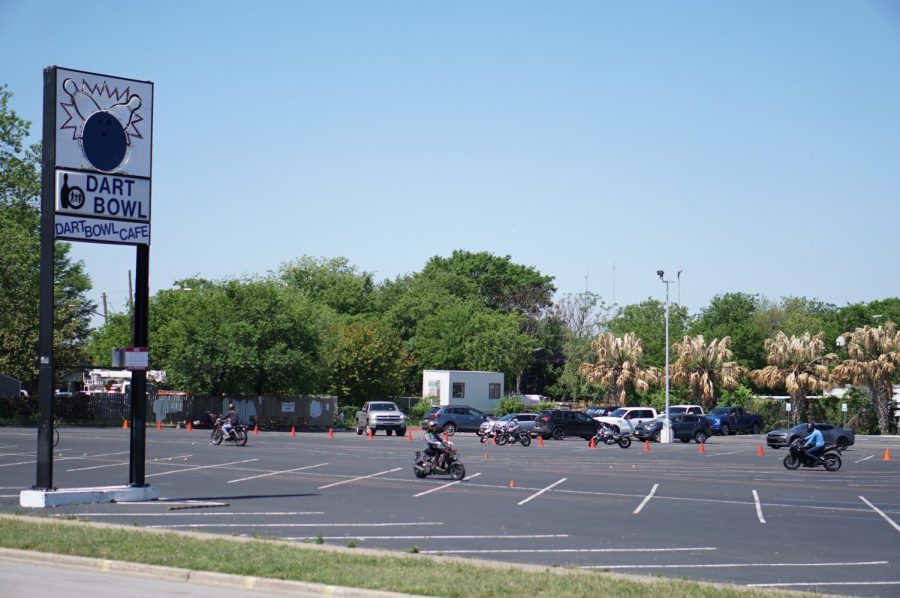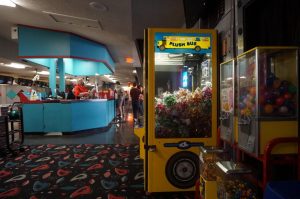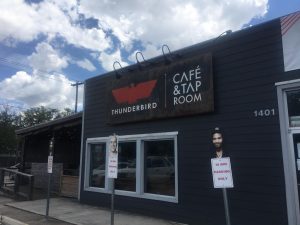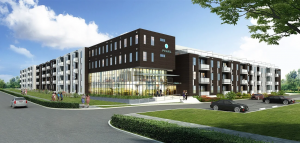New property developments mean big changes for Austin, McCallum, surrounding neighborhoods
Brentwood Neighborhood Association works to maintain city culture, amid affordability and diversity concerns
The parking lot in front of the former Dart Bowl remains on Grover Avenue behind McCallum and is frequently used as a practice location for groups of motorcyclists.
October 27, 2021
Small businesses in the Brentwood and Crestview neighborhoods around McCallum have recently shut their doors, but thanks to the desirable location, property developers have purchased many of the sites and have been working with local neighborhood associations to begin building large, new apartment complexes.
Many of these projects, specifically the ones near McCallum, aim to increase the density of the neighborhood and will involve adjusting the zoning jurisdiction from either commercial or mixed-use to residential.
A commercial zoning jurisdiction allows for businesses and stores to be built on the property, whereas places with residential zoning jurisdictions are set aside for people to live in.
The city government dictates where certain types of properties can be built by designating areas of the city to the different zoning categories. Rezoning, however, can allow for properties of varying types to exist in close proximity to each other.
Examples of these upcoming changes are at Dart Bowl, the former bowling alley located across the street from McCallum, and the Local Post Pub in the Crestview neighborhood. Both local Austin locations will be replaced with apartment complexes containing upward of 300 units.
Brentwood Neighborhood Association leader Kristine Poland worked closely with developers to negotiate elements of the future property to ensure that Brentwood residents near the site are not negatively affected. These included items such as building height, drainage and fencing.
“With the Dart Bowl, we had a small group of neighborhood association participants that worked with the developers and were able to list out a lot of the things that were important to us.” Poland said. “I think this is going to be a success. I’m hopeful.”
The loss of Dart Bowl, however, still resonates with Mac students.
“I think it’s unfortunate that the Dart Bowl is gone,” senior Sorcha Wilson said. “It was such an important place for McCallum students and the neighborhood.”
The closure marked the end of decades of traditions, and now with the new development, the location itself will undergo even more change.
The possibility of more people moving to the neighborhood a block away from McCallum could negatively affect the ongoing parking issues.
“They [large property developments] can eliminate a whole lot of parking,” Poland said. “which isn’t a very good idea, because people still drive here in Austin.”
In Crestview, the Local Post Pub is a popular business dating back to the ‘70s. In May 2020, it was announced that a new project would soon take its place. The business has not yet closed or relocated, but the city council and neighborhood association have agreed to the rezoning and future residential construction.
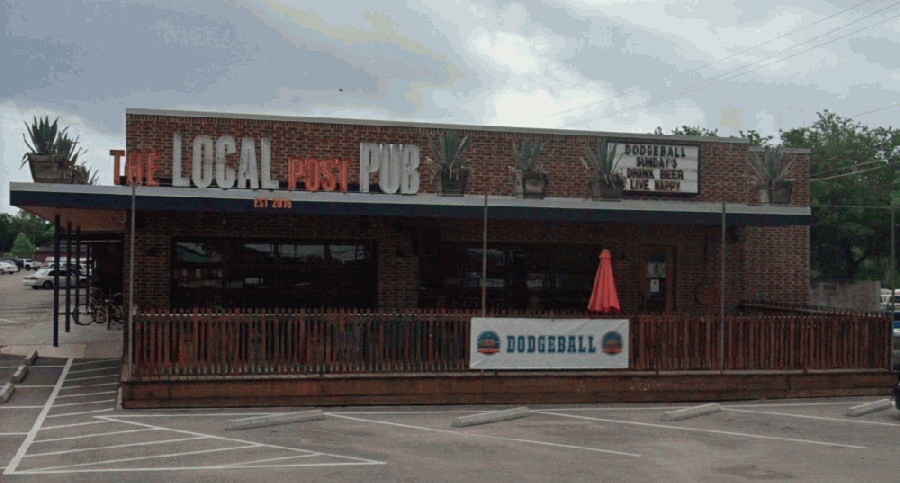
While the construction of hundreds of apartments could help to satisfy the needs of Austin’s growing population, there are concerns about affordability and its consequences.
“I think we can all acknowledge that we need more housing,” Brentwood neighborhood association member Anne-Charlotte Patterson said.
According to KVUE, Austin’s population has increased by 34% since 2010, making it one of the fastest growing metropolitan areas in the country, and according to KUT, the cost of rent and housing has surged.
Many of the incoming residents are attracted to Austin by the well-paying jobs in tech industries, causing a skew for “high end” over affordable housing in the real estate market, which property owners and developers have taken notice of.
“We are expecting [developers] to be a good neighbor and a good contributor to our city by providing diverse housing choices and that allows us to keep a diversity of incomes,” Patterson said. “If these developments are only catering to a certain type of renter, then the city itself becomes very homogeneous.”
By defining housing as “affordable,” property developers can gain allowances from the city on aspects of the construction, like building height.
“As soon as you hear ‘affordable housing,’” Poland said. “You have to think: ‘OK, just push the brakes. What else is this person going to be asking for, in lieu of being so “generous” to build affordable housing?’”
Being granted these allowances does not require a large portion of affordable units. In the Local Post location, the developer agreed to set aside 10% of the units, despite requests from the neighborhood association for more and concerns that such a small percentage of affordable housing does not provide enough options for lower-income residents.
“I think we as citizens have to think about how we can put pressure on the city [and] put pressure on developers to provide more affordable housing in exchange for maybe a little less profits because it’s the right thing to do,” Patterson said. “You want to be part of this city and contribute in a positive way.”
The increase in the cost of living has also caused a loss of creative workers, pushing artists and musicians out into nearby suburbs, like Round Rock and Pflugerville. There are concerns that as businesses close and population demographics shift, the culture of Austin could change. For longtime Austin residents, the new changes transforming the city are taking away some of the heart and soul that drew them into Austin years ago.
“Total peace and love to Austin,” sophomore Estelle Correa said, “but I feel like it’s kind of losing its charm.”
“I always feel kind of sad when I see them [construction workers],” senior Maeve McGeady said. “Building a massive duplex that totally dwarfs the neighbors’ homes.”
Currently, the specific timeline and some of the details regarding the developments are not set in stone. The rezoning and eventual plans for apartment complexes, however, are certain.
Poland says that communication between the neighborhood associations and the developers is the key to a positive final outcome.
“I think that a lot of times when things don’t go right, and they end up in lawsuits and things like that, it’s usually when the developers and the neighborhood association are not talking and they’re not working well together,” Poland said. “They’re not able to have these open conversations about what is important to the neighborhood.”



